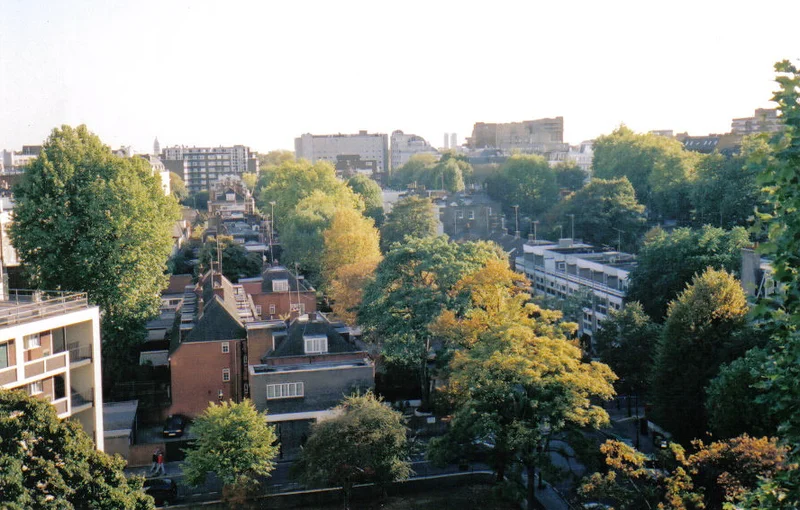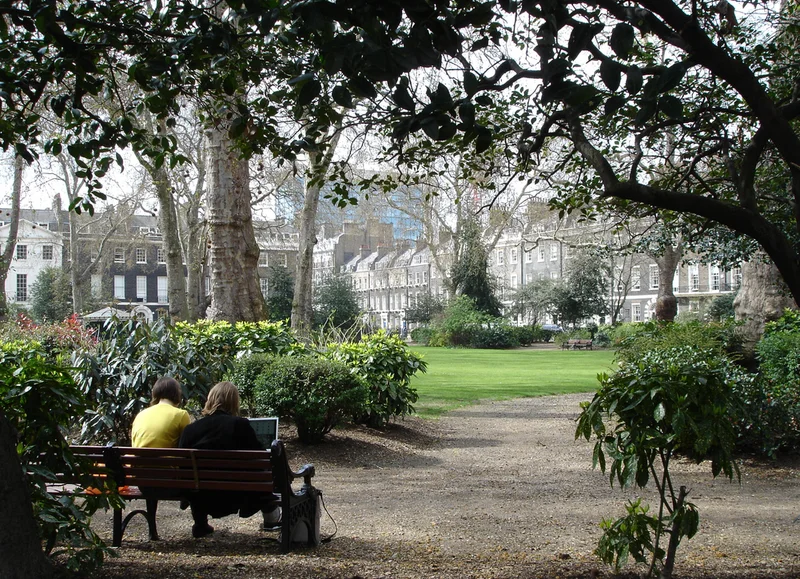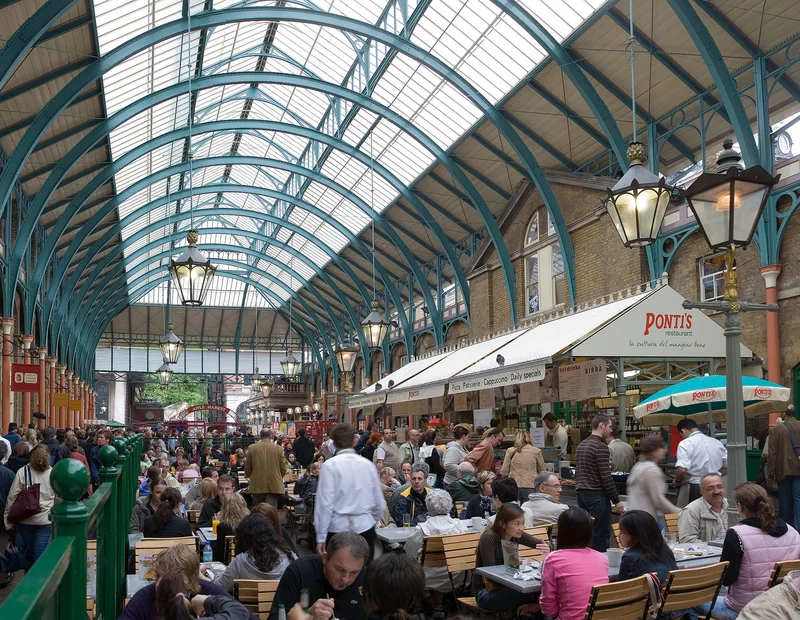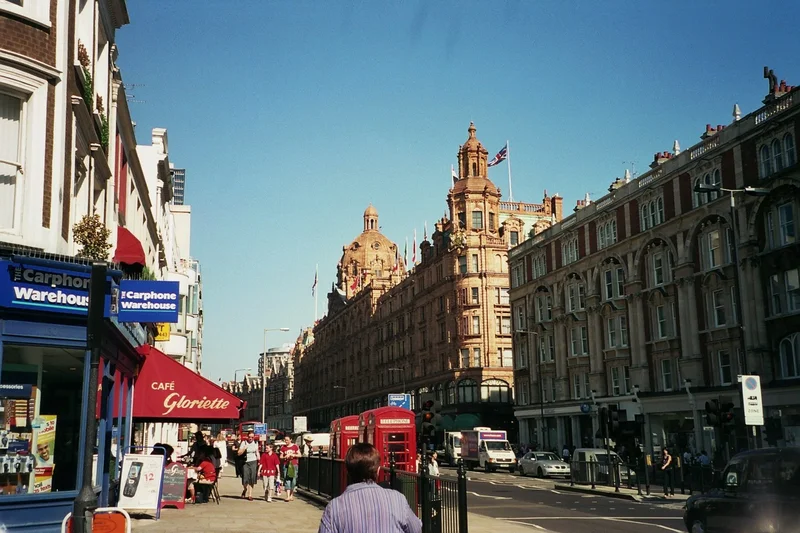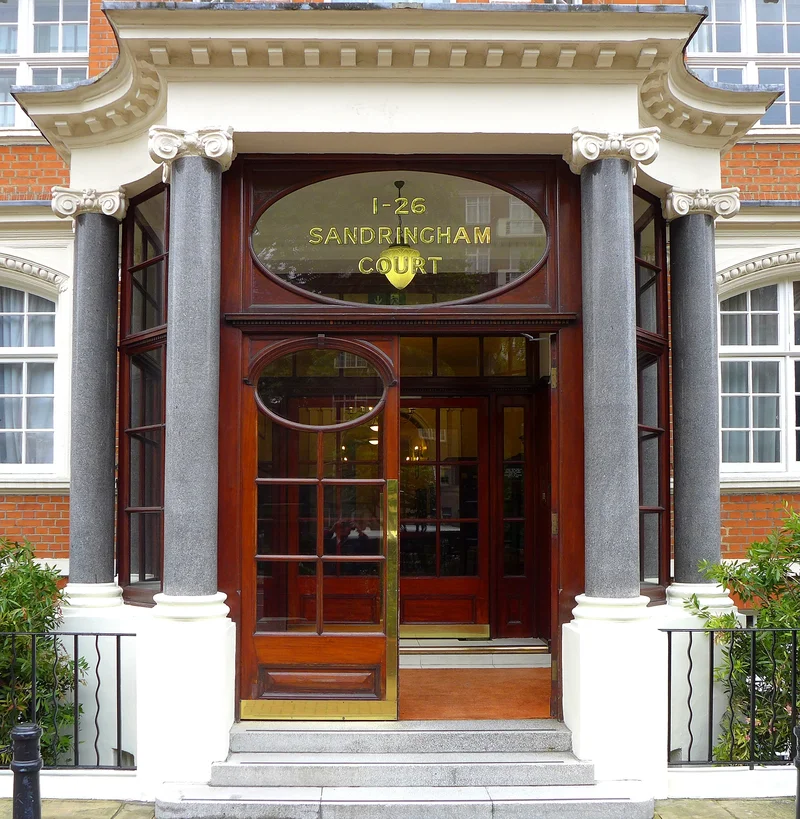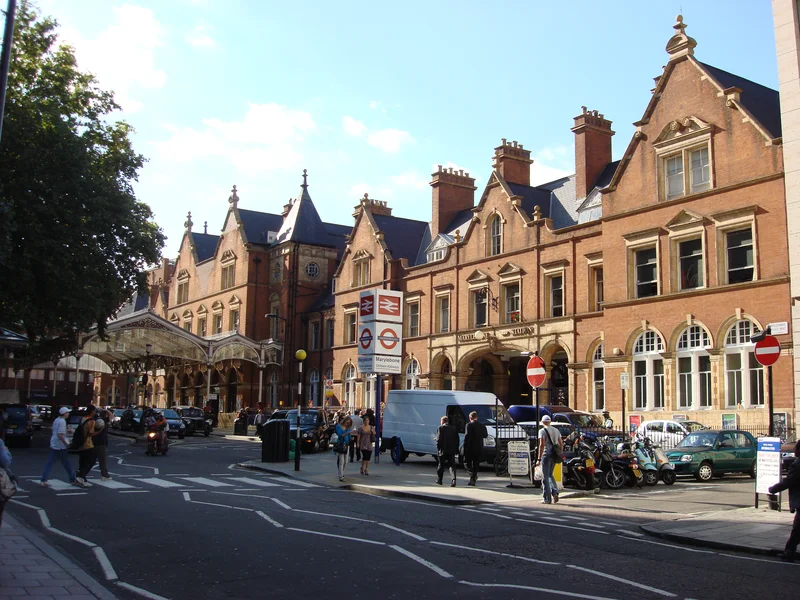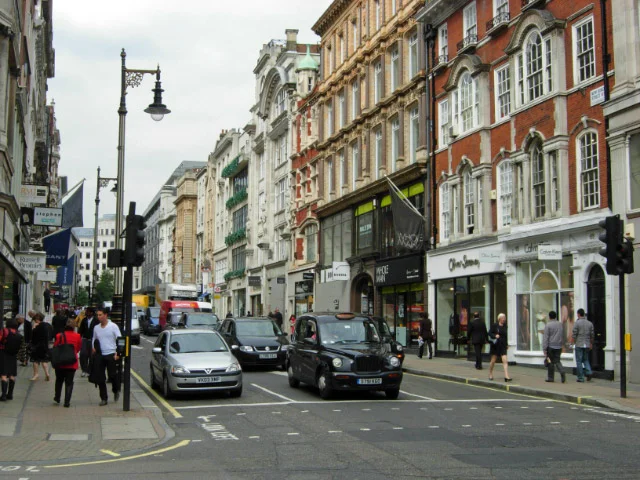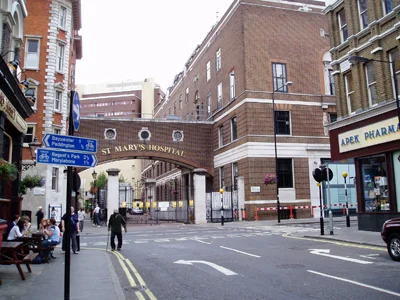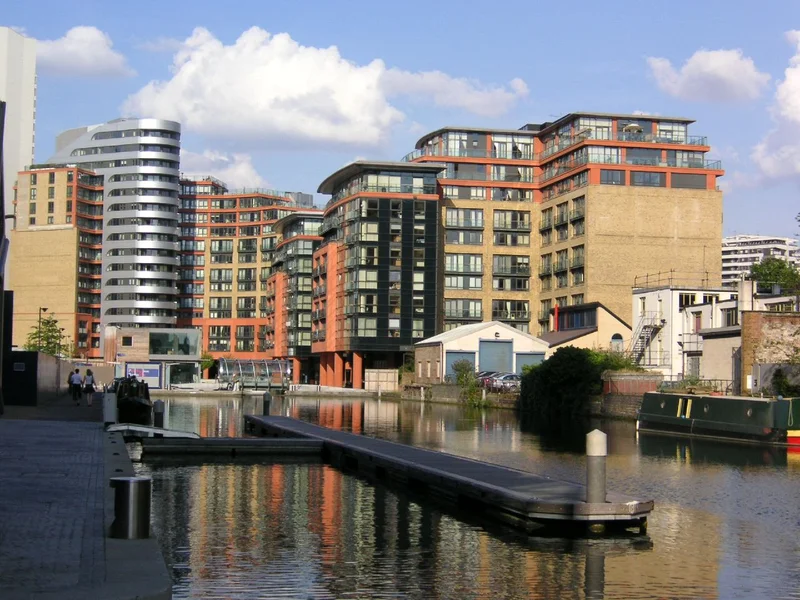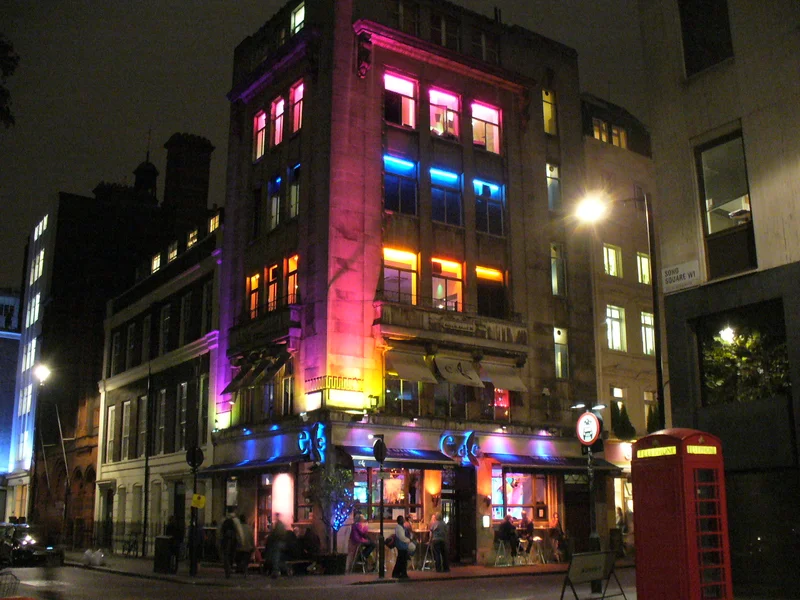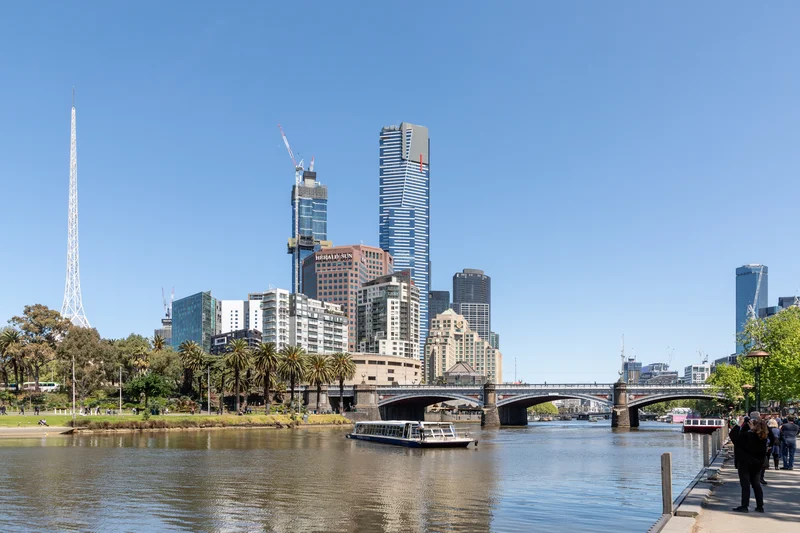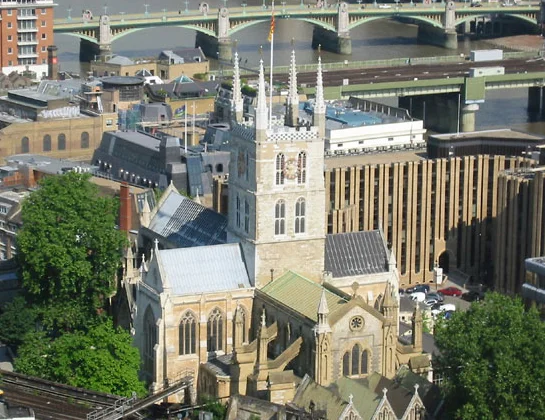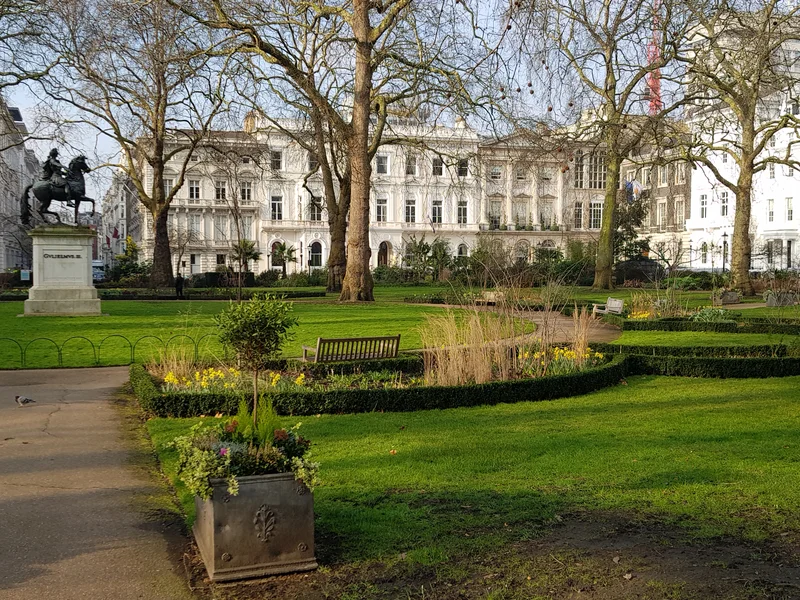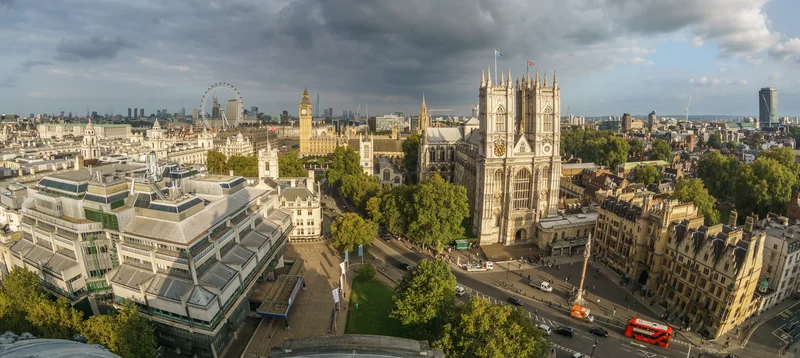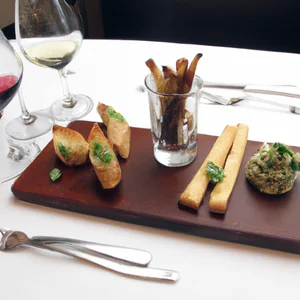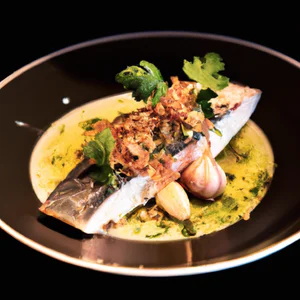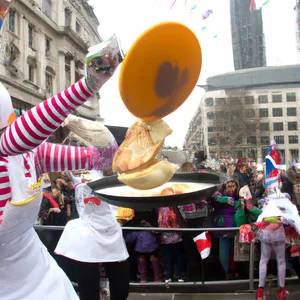Book your experience
The best steak restaurants in London: steakhouses and barbecues not to be missed
If you’re in London and you’re a meat lover, well, get ready to lick your chops! There are some places that are practically a paradise for those who cannot resist a nice steak or a succulent barbecue. For example, last year I went to this restaurant that a friend had recommended to me: a steakhouse that, I tell you, looked like something out of a movie. The smell of meat sizzling on the grill was so inviting I could have stayed there for hours.
So, let’s talk about steakhouses. There are some that you really can’t miss. One of these is, without a doubt, the famous one located in the heart of Soho. The meat is so tender that it seems to melt in your mouth, like a warm hug on a cold day, you know? And then, the staff is super welcoming. They make you feel at home, even if you are a thousand miles away from your kitchen. And, oh! Don’t forget to try their french fries: crispy on the outside and soft on the inside, a real delight.
Then there’s the barbecue! Another unmissable experience. Think about that restaurant I discovered by chance while wandering around Camden. There, the meat is cooked at a low temperature for hours, and the result is that every bite is like a feast for the palate. I swear, every time I think about it, my mouth waters. The atmosphere is so informal, with long tables and people laughing and chatting, as if you were at a big party with friends.
In short, London has so much to offer for meat lovers. Of course, there are also other more chic and expensive places, but sometimes the real magic is found in the simplest places, where meat is king of the table. Maybe not everyone agrees, but I think that the experience of eating in a steakhouse or a barbecue is one of the best things you can do in the city. So, next time you’re in those parts, remember: a good meat restaurant is just around the corner, ready to give you an unforgettable experience!
London’s most iconic steakhouses
An unforgettable experience
The first time I stepped into a steakhouse in London, the scent of grilled meat and spices enveloped my senses like a warm hug. Sitting in an elegant restaurant in the heart of Covent Garden, I ordered a melt-in-your-mouth ribeye, accompanied by a glass of red wine. That evening was not just a meal, but a true ritual celebration of meat, an experience that made me understand why London is a mecca for steakhouse lovers.
Practical information
When it comes to steakhouses in London, the names that emerge are all top-notch. Among the most iconic are:
- Hawksmoor: With several locations across London, this steakhouse is famous for its approach to quality meat, often sourced from sustainable farms.
- Goodman: A temple of meat, with an atmosphere reminiscent of traditional American steakhouses. Don’t forget to try their famous Porterhouse.
- Flat Iron: A more casual and accessible option, known for its simple menu and low price, without compromising quality.
An insider tip
If you want to live an experience out of the ordinary, head to The Meat & Wine Co. in Westfield London, where in addition to enjoying sublime meat, you can take advantage of their selection of wines which is curated by expert sommeliers. Here, the service is so attentive that it almost feels like a personal tasting experience.
The cultural impact
Steakhouses in London are not just restaurants, but also meeting places. The culture of haute cuisine meat has taken root in London society, influencing the way we eat and socialise. Over the years, steakhouses have welcomed not only meat lovers, but also those seeking a dining experience that offers conviviality and style.
Sustainability on the plate
In an age where sustainability is in focus, many London steakhouses, such as Hawksmoor, have committed to offering meat from responsible farms and reducing their environmental impact. This approach not only satisfies the most demanding palates, but also contributes to a more sustainable future for the food industry.
A journey into flavors
When you visit a steakhouse in London, don’t forget to try the side dishes. Baked potatoes, celeriac puree and a selection of homemade sauces can transform your meat experience into a true gastronomic journey. To complete the evening, I recommend ordering a dessert such as the salted caramel panna cotta, a perfect ending after a rich meal.
Myths to dispel
A common misconception is that steakhouses are only for hardcore carnivores. In fact, many restaurants offer vegetarian options and seafood dishes, proving that the gastronomic experience can be inclusive and varied.
Final reflection
After tasting meat in one of London’s steakhouses, you will find yourself reflecting on how rich and varied the world of cuisine can be. What is your favorite cut of meat and how would you pair it with a good wine or a surprising side dish? London, with its vibrant culinary scene, is poised to answer this question.
Barbecues from around the world: the best experiences
A sensorial journey through barbecue
I still remember the first time I entered a barbecue restaurant in the heart of London. The air was thick with smoky aromas and spices, and the sound of meat sizzling on the grill sounded like an enveloping melody. Sitting at the table, I savored a plate of glazed ribs with a spicy sauce that danced on my palate, while the waiter passionately told me the origins of each recipe. That experience made me understand how barbecue is a universal tradition, capable of uniting different cultures under a single passion: good food.
Where to go for an unforgettable barbecue
London offers a variety of barbecue restaurants that celebrate culinary traditions from around the world. Among the most renowned, Smoke & Salt in South London is a must. Here, the menu changes frequently to reflect the seasonality of the ingredients, bringing to the table dishes ranging from American to Japanese barbecue.
Another gem is Pitt Cue Co., famous for its pork ribs and smoked brisket, prepared with techniques that recall Texan traditions. If you want a more casual experience, don’t miss The Big Apple, a food truck offering American-style barbecue with a London twist.
An insider tip
If you’re looking for a truly unique experience, try visiting Borough Market on Saturday mornings, where you’ll find barbecue stands offering samples of their specialties. Here, you can chat with the chefs, discover their secrets and maybe get some advice on how to replicate their recipes at home.
Barbecue as a cultural expression
Barbecue is not just a way to cook; it is a social ritual that crosses cultures. In every corner of the world, from the South of the United States to Brazil, the barbecue represents a moment of sharing and celebration. London, with its multiculturalism, has adopted and reinterpreted these traditions, creating a melting pot of flavors and techniques that reflect its cosmopolitan history.
Sustainability on the plate
Many barbecue restaurants in London are adopting sustainable practices, using meat sourced from local, organic farms. Bodean’s, for example, has implemented a responsible sourcing policy, ensuring that its meat comes from sources that respect animal welfare. Choosing restaurants that care about the environment not only allows you to enjoy a great meal, but it also contributes to a more sustainable food system.
An activity worth trying
For an unforgettable experience, take a barbecue course. Many restaurants offer workshops where you can learn to grill like a pro. Not only will you learn useful techniques, but you will also have the opportunity to taste the dishes you have prepared.
Myths to dispel
Barbecue is often thought to be just a summer affair. In fact, London has a lively barbecue scene all year round, with many restaurants offering hot dishes even in the colder months. Don’t be fooled into thinking it’s just a backyard activity; Barbecue is an art that can be enjoyed in any season.
A personal reflection
Barbecue has the power to bring people together, creating memories and bonds. Next time you’re craving a delicious meal, why not explore the world of barbecue in London? What flavor would you like to discover?
Dry-aged meat: where you can taste perfection
A personal experience
I still remember the day I ventured into the heart of London, attracted by the idea of tasting superior quality dry-aged meat. Having entered the entrance of a small steakhouse, an enveloping aroma of grilled meat welcomed me, promising an unforgettable gastronomic experience. Sitting at the table, I anxiously awaited my order, immersed in conversation with a local who told me about the importance of maturing in British culinary culture. And when my dish finally arrived, the meat, perfectly golden and juicy, exceeded my expectations.
Practical information
In London, there are several renowned steakhouses that celebrate the art of dry-aged meat. Among these, Hawksmoor is undoubtedly one of the most iconic, known for its traditional approach and selection of cuts of meat from sustainable farms. Each piece is aged for a minimum of 28 days, guaranteeing unparalleled flavor and tenderness. Another option is Flat Iron, which offers a more casual but equally delicious selection of meat dishes, all at an affordable price. It is advisable to book in advance, as these restaurants tend to fill up quickly, especially on weekends.
An insider tip
A tip that only true connoisseurs know is to ask the waiter to suggest some lesser-known cuts, such as chateaubriand or hanger steak. These often overlooked pieces can prove to be true gastronomic jewels, rich in flavor and perfect for sharing. Also, don’t forget to accompany your dish with one of the homemade sauces, which can further enhance the taste of the meat.
Cultural and historical impact
The tradition of dry-aging meat in London has deep roots, dating back to the times when local butchers used dry-aging techniques to improve the quality of meat. This process, which involves aging the meat in controlled environments, has become a symbol of culinary mastery and respect for the product. British food culture has embraced maturing as a way to not only enhance flavour, but also celebrate craftsmanship and authenticity.
Sustainability on the plate
In an age where sustainability is at the center of culinary discussions, many London steakhouses are adopting responsible practices. Restaurants like The Ethical Butcher focus on high-quality meat from farms that respect animal welfare. Choosing to eat dry-aged meat in these places not only means enjoying delicious dishes, but also supporting more ethical and sustainable practices.
Immerse yourself in the atmosphere
Imagine sitting in an elegant steakhouse, with dim lights and a welcoming atmosphere. The sound of clinking cutlery and the scent of grilled meat create an enveloping sensory experience. Every bite of dry-aged meat, with its crunchy crust and tender heart, tells a story of passion and dedication. It is a journey into taste that invites you to return to always discover new flavours.
An activity worth trying
For an even more authentic experience, consider taking a meat-aging cooking class. Several cooking schools in London offer hands-on courses where you can learn how to select, prepare and cook dry-aged meat. It’s an excellent way to deepen your knowledge and, of course, delight your taste buds.
Myths and misconceptions
A common misconception is that dry-aged meat is necessarily expensive. In reality, there are several options for all budgets, and many restaurants offer fixed price menus that allow you to enjoy these dishes without emptying your wallet. It is important to explore the various offers and discover that quality does not always imply a high price.
Final reflection
As you plan your visit to London, ask yourself: have you ever considered the journey a simple slice of meat can take, from farm to plate? The next time you enjoy a succulent dry-aged steak, remember that every bite is a celebration of tradition, sustainable practices and, above all, the work of those who have dedicated their lives to perfecting the art of meat.
Family-run restaurants to discover
When I think of London, my mind fills with memories of evenings spent in small family-run restaurants, where the smell of roast meat mixes with laughter and lively conversation. One evening, while enjoying a delicious Sunday roast in a tiny pub in the heart of Camden, I realized how much these businesses are the true beating heart of the city. It’s not just about food; it is an experience that celebrates culinary traditions passed down from generation to generation.
The importance of family restaurants
In London, family-run restaurants offer an intimate and welcoming atmosphere, often accompanied by secret recipes that tell stories of different families and cultures. Places like The Stockpot and Flat Iron not only serve delicious dishes, but also bear witness to a gastronomic heritage that is intertwined with the daily life of the city. These restaurants manage to keep the link with tradition alive, offering dishes prepared with fresh, local ingredients.
An insider tip
If you want an authentic experience, look for restaurants that offer special family packages, often available by reservation only. An example is The Harwood Arms, which, in addition to being the only pub in London with a Michelin star, serves dishes prepared with sustainably sourced meats from local farms. Booking in advance will guarantee you a table and the opportunity to savor unique dishes, prepared with love and passion.
A journey through culinary history
The tradition of family-run restaurants in London dates back centuries, when Italian, Indian and Asian families began bringing their recipes and flavors to the heart of the capital. This mix of cultures has enriched London’s food scene, making it one of the most diverse in the world. Each bite tells a story of migration, meeting and sharing.
Sustainability and responsibility
Many family-owned restaurants are also pioneers in sustainability. Places like The Quality Chop House are dedicated to responsible practices, using meat from animal welfare-friendly farms and seasonal ingredients. Choosing these restaurants not only supports small businesses, but also contributes to a more sustainable future.
Imagine sitting at a wooden table, surrounded by photographs of family and affectionate anecdotes, while you savor a succulent steak accompanied by fresh and colorful side dishes. London has a lot to offer, and family-run restaurants offer you the key to discovering the true essence of the city.
An experience worth trying
I recommend you visit The Olive Tree, a family-run Greek restaurant located in South London. Here you can enjoy traditional dishes such as lamb kleftiko, an ode to slow-cooked meat, served with a side of fresh vegetables. Talk to the owner, who will be happy to share his family history and the culinary traditions that make each dish special.
Myths and misconceptions
A common misconception is that family-owned restaurants can’t compete with larger chains in terms of quality and service. In fact, these little gems often offer superior hospitality and attention to detail that large chains simply can’t replicate.
Bottom line, next time you’re in London, consider getting lost in the alleys and discovering a family-run restaurant. The real question is: are you ready to be surprised by the history and tradition that each dish has to offer?
A gastronomic journey through the history of meat
A personal anecdote that piques curiosity
I vividly remember my first visit to London, when, after a long day exploring the Borough markets, I found myself in front of a restaurant that exuded the irresistible aroma of roasting meat. It was a small place with a welcoming atmosphere, where the wooden tables and soft lights created an intimate environment. Here, I savored a smoked brisket that changed my perception of meat forever. Every bite told a story, a journey rooted in British culinary tradition and beyond.
A fascinating story of culinary traditions
The history of meat in London is a journey that spans centuries, from the humble origins of artisan butchers to Michelin-starred restaurants. Meat is not just a food; it is a symbol of conviviality, an element that united families and friends around laid tables. British culinary traditions, influenced by cultures from around the world, have shaped a rich and varied gastronomic landscape.
- The art of maturing: Maturing meat is another expression of this tradition, which enhances the flavor and tenderness of the meat. Restaurants like The Ginger Pig and Hawksmoor are famous for their dry-aging techniques and use of high-quality meat.
Unconventional advice
If you really want to immerse yourself in the history of meat, I recommend booking a visit to the London Meat Company, a company that offers guided tours of their facilities. Here, you can learn directly from expert butchers how the best cuts are selected and discover traditional processing techniques. This experience offers a unique insight into the meat industry in London, much more than you can simply learn from a menu.
A commitment to sustainability
In modern London, sustainability plays a crucial role in the food scene. Many restaurants have committed to using meat from sustainable farms that respect animal welfare and the environment. Restaurants like Farmstand and Moro not only offer delicious meat, but are also attentive to their sources of supply. This approach not only improves the quality of food, but also contributes to a greener future.
An invitation to explore
If you are a meat lover, you cannot miss the barbecue experience at Street Feast, an event that brings together chefs from around the world to celebrate meat in all its forms. Here you can enjoy dishes ranging from pulled pork to kebap, all in a festive and vibrant atmosphere.
Final reflections
Meat in London is much more than just a food; it is a journey through history, culture and innovation. As a lover of good food, I invite you to reflect on how your food choices can influence the environment and traditions. What is the story that each bite tells? The next time you taste a dish of meat, ask yourself where it came from and what journey it took to get to your table.
Sustainability on the plate: responsible choices in London
An enlightening meeting
I still remember my first visit to London, when I found myself in a small family-run restaurant in the heart of Shoreditch. As I savored a juicy beef burger, the owner, a sustainability enthusiast, told me about their philosophy: every ingredient is sourced from local producers who adhere to rigorous ethical standards. That experience not only delighted my palate, but also sparked in me a deeper awareness of the importance of sustainability in the gastronomic sector.
The sustainable gastronomic panorama
Today, London is a true beacon of responsible culinary practices. According to the Sustainable Restaurant Association, the British capital boasts over 300 restaurants certified for their eco-friendly practices. Among these, stand out names such as The Ethical Butcher, which is dedicated to providing meat from regenerative farms, and Farmacy, where the mantra is “from farm to fork”, ensuring that every dish is made with fresh, organic ingredients .
An insider tip
If you want a truly unique experience, don’t miss Meatopia, an annual festival celebrating sustainable meat. Here you can enjoy dishes created by world-renowned chefs, all committed to using meat from responsible farms. It is an event that attracts not only foodies, but also those who are passionate about sustainability.
The cultural impact of sustainability
The growing focus on sustainability is not just a culinary trend, but reflects a broader cultural shift. London, historically known for its diverse food culture, is now embracing the idea that food can be both delicious and responsible. This movement is partly fueled by awareness of global environmental challenges, making restaurants that adopt sustainable practices protagonists of a new type of culinary culture.
Responsible tourism practices
When visiting London, choosing restaurants that are committed to sustainability is one way to contribute to a greener future. Opting for venues that support local producers and adopt waste-reducing practices helps promote responsible tourism. Additionally, many restaurants offer vegetarian and vegan options, further helping to reduce environmental impact.
An experience not to be missed
For a full immersion in sustainable gastronomy, book a culinary tour with Eating Europe, where you can explore local markets and try your hand at preparing sustainable dishes. Not only will you have the opportunity to enjoy delicious dishes, but also to learn the secrets of sustainability in the kitchen from local chefs.
Myths and reality
A common misconception is that sustainable meat is always more expensive. In fact, many restaurants offer affordable options that don’t compromise on quality. Educating yourself about the manufacturers and the practices they use can reveal delicious, affordable choices.
A new perspective
As I reflect on my experience at that Shoreditch restaurant, I ask myself: how can we all contribute to a more sustainable dining culture? It’s a question that invites us to explore our eating habits and consider the impact of our choices, both on the plate and beyond. Next time you sit down at table, ask yourself: is your choice sustainable?
Barbecue culture: an experience to live
An unforgettable memory
I remember the first time I enjoyed barbecue in London. It was a warm summer evening and the air was filled with the aroma of grilled meat. I was in Camden Market, surrounded by a myriad of stalls offering specialties from every corner of the world. I decided to try a smoked brisket, served with a sweet and spicy barbecue sauce. Each bite was an explosion of flavor, and that moment marked the beginning of my passion for the barbecue culture in this vibrant city.
Practical information
London is a melting pot of cultures, and its approach to barbecue is a clear reflection of this diversity. From the tradition of Texas barbecue to the smoky flavors of Japanese barbecue, there are experiences for every palate. Places not to be missed include Smokestak in Shoreditch, known for its smoked meats and homemade sauces, and Pitt Cue Co., famous for its refined take on American barbecue. Both restaurants offer a welcoming atmosphere and a great selection of craft beers.
Unconventional advice
If you want a truly authentic experience, try visiting one of the pop-up barbecues that pop up on weekends, like Meatopia or Barbecue Festival. These events not only offer high-quality meat, but also the chance to interact with master grillers and learn unique cooking techniques.
The cultural impact
Barbecue in London isn’t just a meal; it’s a social experience. Traditionally, barbecues are a time of conviviality, where friends and family gather to share food and stories. This practice has deep roots, influenced by different cultures that have mixed over the years. Today, barbecue represents a way to celebrate not only meat, but also community and unity.
Sustainability in barbecue
In an age where sustainability is key, many barbecue restaurants in London are adopting responsible practices. For example, some use meat from ethical farms, while others are committed to reducing food waste. Choosing a restaurant that follows these practices not only allows you to enjoy a great meal, but also contributes to a better future for our planet.
An experience worth trying
For an unforgettable experience, join a barbecue cooking class. Places like The Cookery School offer classes where you can learn to marinate, smoke, and grill like a pro. Not only will you return home with new cooking skills, but also with treasured memories.
Myths to dispel
A common misconception is that barbecue is only a cooking method for fatty meats. In fact, the barbecue can be used to cook a wide range of ingredients, including vegetables and fish, which absorb the smoky flavors wonderfully.
Final reflection
Barbecue culture in London is a journey that involves the senses and the heart. I invite you to consider: What meaning does barbecue have for you? Is it just a meal, or is it an opportunity to connect with others and enjoy life? Next time you find yourself in front of a grill, remember that you’re not just cooking meat, you’re creating lasting memories.
Unconventional advice: where to eat surprise meat
An anecdote that excites the palate
I still remember my first visit to London, when I found myself exploring a hidden corner of Soho. There, far from the more popular meat restaurants, I found a small place called “Flat Iron”. It wasn’t just the meat that struck me, but the atmosphere: a mix of rustic elegance and informal hospitality. I ordered a cut of meat I had never tasted before: a flat iron steak, served with a chimichurri sauce that enhanced every bite. This experience taught me that in London, culinary surprises are often hidden in the most unexpected places.
Where to find hidden gems
London is a meat lover’s paradise, and iconic steakhouses aren’t the only option. Here are some of the best unconventional choices:
- The Coal Shed in Tower Bridge: Known for its charcoal grill, it offers a meat experience that is as visual as it is tasteful.
- MeatLiquor, a restaurant that combines gourmet burgers and a lively atmosphere, is famous for its “meat shakes” and its dirty burger.
- Hawksmoor: Although known, it is not always among the most obvious choices. Their dry-aged meat is an experience not to be missed.
An insider tip
If you really want to amaze your palate, try asking your waiter for the “cut of the day”. Many restaurants, like The Butcher’s Shop, are known for having special cuts not on the menu, available only to those who know how to ask.
The cultural impact of meat in London
The meat tradition in London has deep roots, dating back to historic markets such as Borough Market, where local butchers have always played a crucial role in the city’s gastronomic culture. Meat is not just a food, but a symbol of conviviality, a way to bring people together around a table.
Sustainability on the plate
Many restaurants are adopting more sustainable practices, such as using meat from local farms and cooking methods that reduce waste. An example is Farmacy, where the menu is entirely dedicated to organic and ethically sourced ingredients.
An immersive experience
While exploring the world of meat in London, consider attending a cooking workshop in the historic Smithfield Market, where you can learn from expert butchers how to choose and prepare the perfect cut.
Clearing up the myths
A common misconception is that London steakhouses are all expensive and formal. In fact, there are many casual, accessible options that offer high-quality meat without breaking the bank. Don’t be fooled by appearances!
Final reflection
When it comes to meat in London, the possibilities are endless and every corner of the city has a story to tell. As a meat lover, what hidden gems have you discovered in your dining experience? Next time you walk through the door of a steakhouse, remember that the real secret may be just around the corner.
Meat and pubs: a winning combination
When I think of London, one of the most vivid images that comes to mind is that of a traditional pub, with its rustic charm and welcoming atmosphere, where a good plate of meat goes perfectly with a cold pint of beer. I remember an evening at “The Eagle”, a pub located in the heart of Clerkenwell, where I enjoyed a Sunday roast that exceeded all my expectations. The beef, slow cooked and served with a generous portion of Yorkshire pudding, was a true gastronomic experience that made for an unforgettable afternoon.
Historic pubs and meat-based delicacies
London is dotted with historic pubs that offer not only a wide range of craft beers, but also meat dishes that tell stories. An example is “The Harwood Arms”, the only pub in London to boast a Michelin star. Here, the menu changes seasonally, but their famous dry-aged meat is always a must. It is interesting to note how the art of maturing meat is a tradition that dates back centuries, allowing unique flavors and textures to be enhanced.
An insider tip: the Pork Pie
If you want to try something special, ask for a Pork Pie. This classic of British cuisine is often overlooked, but in many London pubs it is prepared with a traditional recipe that makes it irresistible. What many don’t know is that the best Pork Pie is often found in smaller, lesser-known pubs, away from the tourist circuits.
The cultural impact of meat in pubs
Meat plays a central role in British gastronomic culture, especially in pubs, where conviviality and sharing a good meal are intertwined with the country’s history. Pubs aren’t just places to drink; they represent a meeting point for families and friends, creating unforgettable memories around a table with abundant dishes.
Sustainability and responsible choices
In recent years, many London pubs have started to incorporate sustainability practices, offering meat sourced from local, organic farms. This not only helps the environment, but also ensures a better and more authentic flavour. Choosing to eat in these places not only delights the palate, but also supports the local economy.
Immersion in the atmosphere
Imagine entering a pub with dark wood walls, the scent of roast meat wafting in the air and the sound of laughter resounding. The soft light of the lamps creates an intimate atmosphere, and when you sit at the table with a steaming plate of meat, you feel like you are part of something bigger. It’s not just a meal, it’s an experience that involves all the senses.
An activity to try: pub food tour
If you feel like discovering these culinary treasures, I recommend taking a London pub food tour. These guided experiences will take you to some of the city’s best historic pubs, allowing you to tuck into meat dishes and craft beers, all while hearing fascinating stories about London life.
Myths and misconceptions
A common misconception is that pubs only serve fast food or snacks. In fact, many of them offer elaborate menus that celebrate British culinary tradition and the quality of the ingredients. It’s not uncommon to find gourmet dishes alongside pub classics, proving that meat in pubs is not just a stopgap, but an opportunity to explore sophisticated flavours.
Personal reflection
Next time you’re in London, consider finding a pub where you can enjoy some succulent meat. I invite you to reflect on how a simple meal can transform into a moment of connection and shared joy. What is your favorite meat dish? And what stories do you have to tell about pub dining experiences?
Local experiences: meat markets and street food
An unforgettable encounter with meat at Borough Market
There is nothing more fascinating than getting lost among the stalls of Borough Market, one of London’s oldest and most iconic food markets. The first time I entered, the scent of grilled meat mixed with that of exotic spices and fresh bread, creating a sensory experience that immediately captured my senses. While walking among the various stands, I discovered a small dry-aged meat kiosk, where the butcher, with a warm smile, invited me to taste a freshly cooked piece of meat. Each bite was a journey into a world of flavours, a confirmation that London is a true paradise for meat lovers.
Where to find the best street food experiences
If you’re looking for authentic experiences, Borough Market is an unmissable starting point. Here, you can find a variety of culinary options that go far beyond meat. However, don’t forget to also visit Camden Market, famous for its street food offerings from around the world. From Mexican carne asada tacos to Turkish kebabs, the variety is astonishing and each bite tells a unique cultural story.
An insider tip
A little-known tip? Look for the “Meat & Cheese” kiosk, where you can enjoy a pulled pork sandwich that’s a carnivore’s dream. Also, ask to try the special homemade sauce – it’s a well-kept secret among market regulars and enhances the flavor extraordinarily.
Meat: a cultural and historical link
The market tradition in London has deep roots, dating back to the Middle Ages. Borough Market witnesses a time when fresh meat was a rarity and trading in local produce was essential to daily life. Today, these markets not only celebrate meat in all its forms, but also serve as cultural hubs, where the community gathers to share food and stories.
Sustainability on the plate
In an age where sustainability is crucial, many market meat vendors are committed to using responsible practices. Choosing meat from local, sustainable farms not only supports the local economy, but also allows you to enjoy fresh, high-quality products, reducing your environmental impact.
An immersive gastronomic experience
Imagine strolling the streets of Borough Market, surrounded by vivid colors and intoxicating aromas. Local chefs prepare delicious dishes, while visitors exchange laughter and culinary advice. There’s a certain magic in the air, a shared energy that makes every bite even more special.
A myth to dispel
A common misconception is that street food is always low quality. In fact, many of London’s top chefs began their careers in the markets, bringing innovation and creativity to traditional dishes. Never underestimate a simple kiosk: you could find a gastronomic treasure.
An invitation to reflection
At the end of the day, what does the experience of meat markets in London teach us? Maybe it’s the power of food to bring people together, to tell stories and honor traditions that have been passed down for generations. Have you ever wondered what stories lie behind your next meal? Next time you visit a market, take a moment to explore not only the flavors, but also the stories that make each bite unique.

 Architecture and Design
Architecture and Design Cities and Regions
Cities and Regions Culture and History
Culture and History Events and Festivals
Events and Festivals Fashion and Shopping
Fashion and Shopping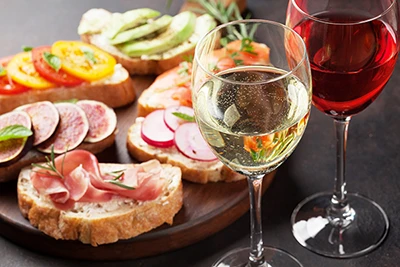 Food and Wine
Food and Wine Nature and Adventure
Nature and Adventure Unique Experiences
Unique Experiences